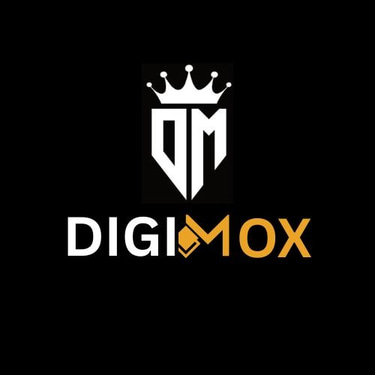What is Content Marketing?
Content marketing is more than just creating posts or videos—it’s a strategic approach to delivering valuable, relevant, and consistent information to your audience. The goal? Attract and retain the right people, and ultimately inspire them to take action. In today’s digital world, great content can: • Build trust & credibility with your audience • Generate leads & sales • Foster customer loyalty over time
8/12/20256 min read


What Is SEO and How It Works in 2025 — The Heart of Digital Visibility
There’s a quiet power behind every search result you see online — a kind of invisible magic that determines what gets noticed and what gets lost in the noise. That magic is called SEO — or Search Engine Optimization.
But in 2025, SEO isn’t just a technical trick or a marketer’s game. It’s the art of understanding people — how they think, what they feel, what they search for at 2 a.m. when curiosity strikes, and what questions they ask before making a big decision.
In a world that’s overflowing with content, SEO is what helps your voice cut through the chaos and reach the right people at the right time — not with luck, but with purpose.
So let’s slow down for a moment and understand not just what is SEO, but what is SEO and how does it work, and why it matters more than ever for brands, creators, and dreamers trying to make their mark online.
What Is SEO, Really?
What is SEO in websites? Simply put, SEO — Search Engine Optimization — is the process of making sure your website shows up when people are actively looking for what you offer. Think of it as digital matchmaking — connecting searchers with the answers, solutions, or products they actually need.
But here’s where it gets interesting: in 2025, “search” isn’t just happening on Google anymore. It’s happening everywhere.
People are searching through:
Bing and DuckDuckGo for privacy-focused results.
YouTube and TikTok for visual how-to guides and reviews.
Amazon for product research before they even think of Google.
AI chat tools like ChatGPT or Gemini to get instant, conversational answers.
This means SEO optimisation has evolved into something much bigger — it’s no longer just Search Engine Optimization; it’s Search Everywhere Optimization.
And the mission? Simple: to bring the right people to your digital doorstep without paying for every single click.
Why SEO in 2025 Feels So Different
Once upon a time, “ranking on Google” felt like winning the internet. You’d sprinkle some keywords, get a few backlinks, and boom — traffic would pour in.
But that era is gone.
Today, search is deeply human. It’s powered by intent, emotion, and trust. When people search, they’re not just typing — they’re expressing curiosity, frustration, excitement, or need. And the search engines of 2025 understand that.
People don’t search like machines anymore — they search like people.
“Hey Siri, what’s the best protein powder for beginners?”
“Show me quick fitness meals on TikTok.”
“Top affordable gyms near me with personal trainers.”
What is SEO and how does it work in this new world? It’s about being present, relevant, and human wherever your audience looks for answers.
To succeed, you have to think like a human first, and an algorithm second.
How SEO Really Works (Without the Jargon)
Imagine the internet as the largest library ever built — one that never closes, never stops expanding, and has billions of “books” (webpages). The search engines? They’re the librarians. Their job is to scan every page, store them neatly on digital shelves, and instantly hand the most relevant “book” when someone asks a question.
Here’s how that process happens behind the scenes:
Crawling – Automated bots explore the web, finding and reading new or updated pages.
Rendering – They see how your page actually appears to real visitors.
Indexing – They file your content in their massive database.
Ranking – Algorithms decide where your page belongs on the results list.
In 2025, artificial intelligence has supercharged this process. Search engines no longer just match words — they understand meaning, tone, and even emotional intent. They’re trying to deliver exactly what someone wants, not just what they typed.
That’s the modern soul of what is SEO and how does it work — it’s about connection, not just computation.
Keywords Still Matter — But Intent Is Everything
Yes, keywords are still the foundation of SEO optimisation. But they’re not the whole house anymore.
A keyword is what people say. Intent is what they mean.
Let’s take an example.
If someone searches “best running shoes 2025,” they don’t want the history of sneakers — they want honest, up-to-date recommendations, maybe even a quick comparison or a YouTube review.
Your job? Understand the intent, not just the words.
When your content matches both the language people use and the reason they searched, you stop being invisible.
That’s where real SEO optimisation lives — in empathy.
On-Page SEO — The Things You Control
Think of on-page SEO as everything you can directly fine-tune inside your website. It’s your digital storefront — clean, inviting, and helpful.
Here’s what matters most in 2025:
Write content that answers real questions, not just fills space.
Use clear, catchy titles that make people want to click.
Craft meta descriptions that sound human — like something you’d say to a friend.
Keep paragraphs short, sentences conversational, and information skimmable.
Use alt text for images so that both users and search engines understand them.
Make URLs simple and keyword-friendly — no messy strings of random numbers.
Pro Tip: People now expect websites to feel effortless. If your site takes too long to load or doesn’t look good on a phone, they’re gone. Search engines notice that — and your rankings drop.
In short, user experience is now the heart of what is SEO in websites — because if your site doesn’t delight users, it won’t impress search engines either.
Off-Page SEO — Building Trust Beyond Your Site
If on-page SEO is what you say about yourself, off-page SEO is what the world says about you.
It’s about reputation — the kind that can’t be faked.
Every time someone mentions your brand, shares your post, or links back to your content, search engines see it as a vote of confidence.
Yes, backlinks still matter. But in 2025, search engines also look for signals of authenticity and engagement — things like:
Real social media buzz around your brand.
Mentions of your name or company, even without links.
Consistency across every platform — from Instagram bios to YouTube descriptions.
The quality of your partnerships and collaborations.
When people talk positively about your brand online, it tells search engines you’re trustworthy. And trust, in 2025, is the new SEO currency.
Technical SEO — The Invisible Engine
You can have the most beautiful website in the world, but if it’s slow, broken, or confusing to crawl, search engines can’t (and won’t) show it to people.
That’s where technical SEO comes in — the behind-the-scenes structure that makes your website both human-friendly and machine-friendly.
Here’s your 2025 technical SEO checklist:
Use HTTPS for security.
Keep page load times lightning-fast.
Design for mobile-first experiences.
Maintain a clear, logical site structure so bots can navigate easily.
Fix broken links and 404 errors quickly.
Add schema markup to highlight rich details like ratings, events, and reviews.
In 2025, technical SEO is like tuning a high-performance car engine — your site can’t race ahead if it’s running on outdated parts.
Why SEO Still Reigns Supreme in 2025
Every single day, Google alone processes more than 8.5 billion searches. That’s billions of moments where someone is looking for something — maybe exactly what you offer.
And here’s the truth: most of those clicks go to the results on the first page.
That’s why why is SEO important isn’t just a question — it’s a reality every business must face.
Unlike paid ads, which vanish the moment your budget dries up, SEO keeps giving. It builds organic visibility that lasts for months or even years.
And beyond traffic, why is SEO important lies in its power to create trust. People believe in what they find naturally — not what’s pushed at them through ads.
Think of it this way — ads rent attention, but SEO earns it.
Winning SEO in 2025 — Your Modern Playbook
So how do you win this ever-changing game? Not by hacking the system, but by mastering the fundamentals with heart and strategy.
Here’s your 2025 SEO playbook:
Research deeply. Don’t just chase popular keywords — understand your audience’s questions, fears, and goals.
Study your competitors. See what works for them, then make something better and more human.
Create value. Each blog post, video, or guide should genuinely help someone.
Optimize smartly. Keep pages fast, mobile-friendly, and visually clean.
Earn backlinks with integrity. Shareable, trustworthy content attracts links naturally.
Keep it fresh. Update content regularly so it stays relevant.
Analyze and adapt. Use analytics not as a report card but as a compass for what’s next.
Remember — SEO optimisation isn’t a destination. It’s a relationship between your brand and the people searching for you.
The more you nurture it, the more it gives back.
The Human Side of SEO
Here’s the part most people forget: SEO isn’t about algorithms; it’s about people.
Behind every search query, there’s a person — someone who’s curious, hopeful, confused, or in need of help.
When you create with empathy, your content resonates beyond rankings. It becomes part of someone’s journey. That’s what Google’s AI (and every modern search engine) is trying to measure — authentic value.
In the end, the best answer to what is SEO and how does it work is this: it’s about caring enough to create something that truly helps.
Final Thought
What is SEO in 2025? It’s not a checklist. It’s a conversation.
It’s not just about being found — it’s about being chosen.
It rewards patience, creativity, and authenticity. It’s for the creators who believe that real visibility doesn’t come from tricks but from trust.
So, whether you’re a brand, a blogger, or a business owner, remember this: why is SEO important isn’t just about traffic — it’s about connection.
When your story is honest, your content is valuable, and your presence is consistent, both people and algorithms will listen.
Let your message be clear. Let your heart be visible. And let your SEO — your Search Empathy Optimization — be the bridge that connects your purpose to the world.
